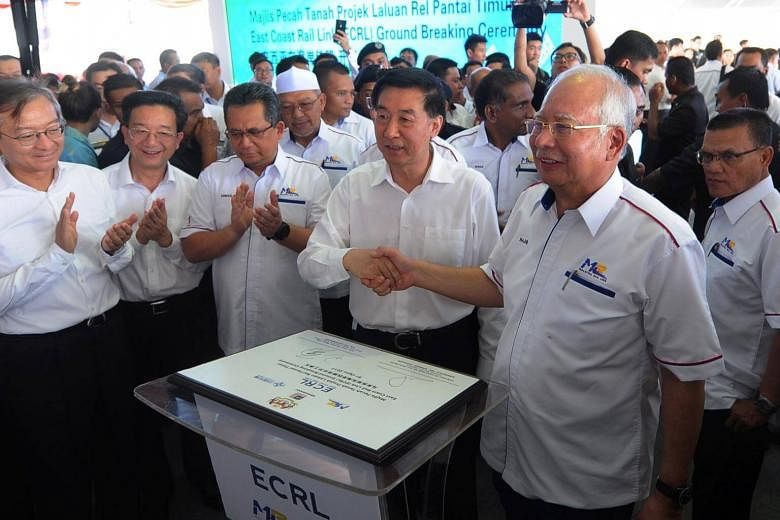KUALA LUMPUR - Malaysia will consider China's proposal to set up a regional counter-intelligence centre in Johor equipped with radar surveillance and a missile system.
According to a senior Malaysian government source, the proposal for the radar and missile system was "lightly touched on" during talks between Prime Minister Najib Razak and visiting Chinese State Councillor Wang Yong after the ground-breaking ceremony of the East Coast Rail Link project in Kuantan on Wednesday (Aug 9).
The Malaysian Insight, a Kuala Lumpur-based news website, had reported that China would offer Malaysia up to 12 units of the AR3 multiple launch rocket system (MLRS) at the ceremony.
The report, citing sources, said the offer reflected the widening defence and trade ties between the two countries.
The government source told The Straits Times that discussions on the matter were still continuing, and that a firm decision would be made only when Datuk Seri Najib meets Chinese President Xi Jinping, who is expected to make an official visit to Malaysia some time in November.
According to defence site military-today.com, China's AR3 artillery rocket system is used to engage remote strategic targets like command centres, and is capable of launching conventional rockets as well as guided missiles with a range of up to 280km.
"MLRS is usually for surface-to-surface attack," said Dr Wu Shang-Su, a research fellow at the S. Rajaratnam School of International Studies.
He noted that longer-range units based in Johor could even reach Indonesia, and those with guidedmissiles were "capable of precise attacks on important targets".
The proposal to expand Malaysia's growing economic ties into military defence arrangements first came up during Mr Najib's meeting with Mr Xi in Bejing in mid-May, at which the Chinese leader put forward a wish list of initiatives.
These included ensuring China's lead role in developing two high-speed rail links that would connect Kuala Lumpur with Singapore and with Bangkok, a dedicated oil pipeline to serve China's energy needs, and joint explorations between Chinese and Malaysian state oil companies to exploit resources in the South China Sea.
According to Malaysian government officials, Mr Najib will not refuse China's offers to boost Malaysia's security capabilities if the financial assistance to take on these projects is attractive.
Additional reporting by Lim Ai Leen


